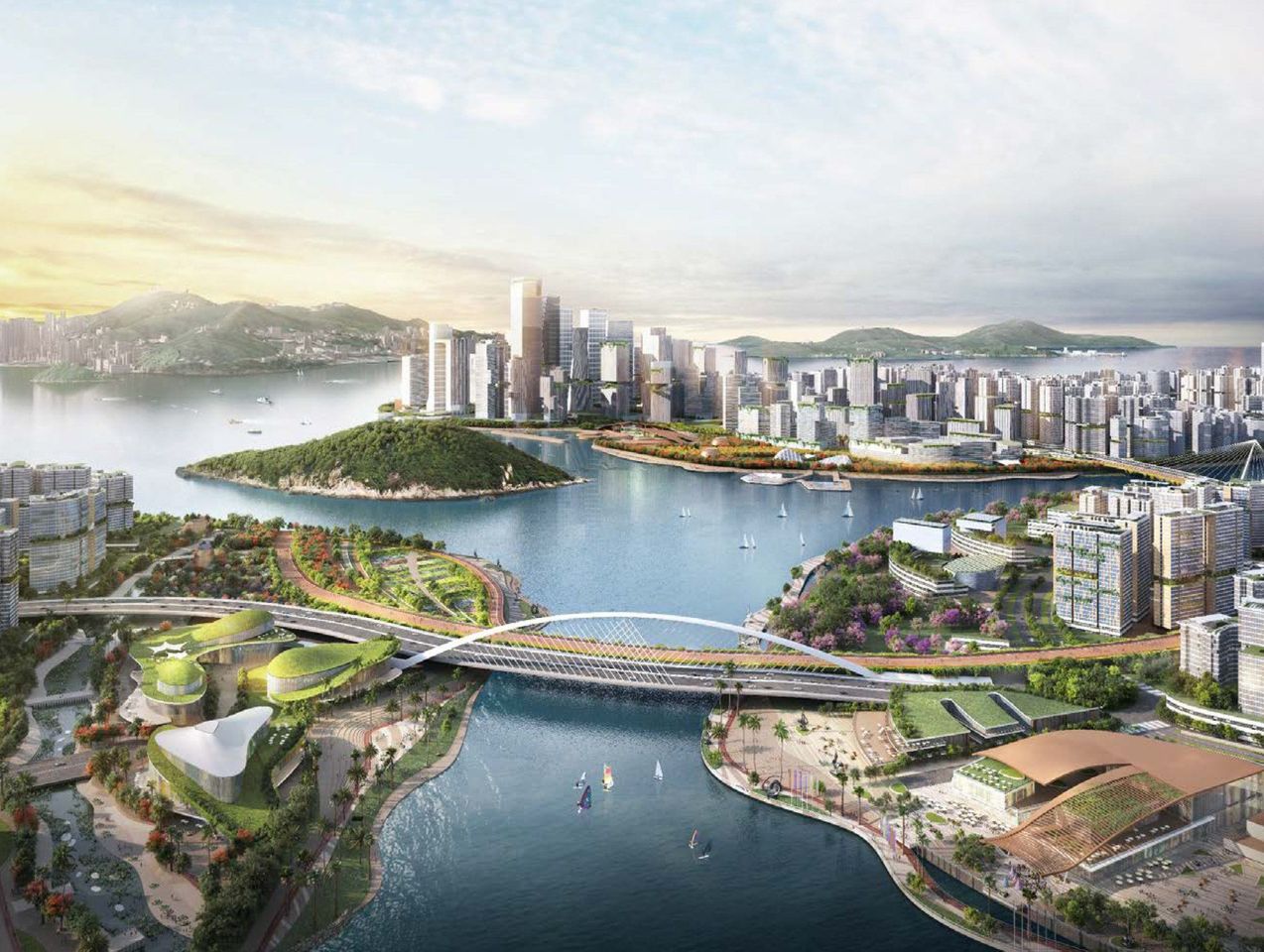Hong Kong News

Focus on Northern Metropolis scheme, not artificial islands: Hong Kong’s Regina Ip
Regina Ip Lau Suk-yee, the Hong Kong government’s top adviser, has urged the administration to prioritise a mega development project near the border with mainland China over a controversial plan to reclaim three artificial islands off Lantau, raising eyebrows in political circles and dividing opinion.
While political scientists said the administration should take the chance to address the public’s concerns about the Lantau Tomorrow Vision plan given Ip’s clout, an insider said her remarks in her capacity as convenor of the key decision-making Executive Council would inevitably embarrass the government.
Ip, a veteran lawmaker and chairwoman of the New People’s Party, on Monday said the HK$580 billion (US$78.3 billion) price tag for building 1,000 hectares of artificial islands in waters off Lantau near Kau Yi Chau was “very preliminary”.
While she said the government should continue its study on the project, which aimed to build 210,000 flats to house half a million people and create the city’s third business district, she cast doubt over the economics of it.
She questioned whether the city really had such a great demand for commercial land, pointing to a great number of sites to be provided in the future at Kai Tak and areas near the city’s airport.
“With limited resources, the Northern Metropolis development must be prioritised over the Kau Yi Chau reclamation,” Ip said, questioning whether the government had the ability to push ahead with both projects simultaneously under the current financial conditions.
Under the Northern Metropolis scheme, proposed by former chief executive Carrie Lam Cheng Yuet-ngor, an international IT hub and 900,000 flats for 2.5 million people will be built near the mainland border in the northern New Territories.
Ip said the metropolis, for which costs had yet to be estimated, was strategically significant as it could foster closer integration of Hong Kong, Macau and mainland cities on the flow of talent, goods and data.
“It can help break down the conflicts inherent in ‘one country, two systems’,” she said, referring to the principle under which the city is governed.
In response, the Development Bureau said it was grateful for Ip’s suggestions but stressed authorities would push ahead with both mega development projects at the same time to boost the city’s land supply.
“We will study and consider her opinion alongside the views collected in public engagement activities to strengthen our preliminary proposal and make the best decision for the society,” a spokeswoman said.
Green groups and professionals recently urged the government to properly outline the real cost and environmental impact of the controversial Lantau project. But development minister Bernadette Linn Hon-ho stood firm, saying the issue was about how to execute the project rather than whether to do it.
It is not the first time Ip has raised eyebrows with her remarks over government policies since being appointed as Exco convenor last July.
She called for a review of a plan to turn part of an exclusive golf course into public housing last August. That month she also suggested the city could “consider waiving extra stamp duty on homes for mainland Chinese buyers as a way to shore up the economy and reverse a brain drain” – a comment that drove up developers’ share prices and prompted a government clarification.
The veteran politician later pledged to be more careful when speaking in public.
Earlier this month, Ip also urged the authorities not to approve substantial bus fare increases as it added to the financial burden of residents.
An insider said Ip’s latest remarks had placed the government in an embarrassing spot, despite noting that she was in a difficult position as she also had to represent public opinion given her political party background.
“The government has been promoting the project but the Exco convenor said we shouldn’t do that. It is very awkward,” the source said.
 An illustration of the completed three artificial islands for the Lantau Tomorrow Vision
An illustration of the completed three artificial islands for the Lantau Tomorrow Vision
Exco member Ronny Tong Ka-wah stressed the council had a duty to deliver a variety of opinions to the government and he respected different members’ views.
“If Exco only supports all government policies, I think its function may not be performed,” Tong said.
Tong said he did not see a conflict between the two mega initiatives as the government might consider issuing bonds and cooperating with developers on building artificial islands to reduce a reliance on public money.
John Burns, emeritus professor of the department of politics and public administration at the University of Hong Kong, said it was appropriate for Ip to make such comments as she was a popularly elected lawmaker, and she had not revealed any confidential information or internal Exco discussions.
“Government must address Ip’s doubts about the financial viability of undertaking two mega projects at the same time. Ip is an insider and her voice matters. The government should realise that she speaks for many citizens,” Burns said.
He added that the government should respond to other criticisms of the mega reclamation, including environmental sustainability issues, and make adjustments to policies and government priorities to show it was listening to the public.
Political commentator Professor Sonny Lo Shiu-hing also said Ip could meet Beijing’s expectations of public office holders by offering the government constructive advice.
“Under the new political circumstances, the central government expects political elites to assist officials in governing the city,” he said, referring to Beijing’s “patriots-only” electoral overhaul. “Ip is reasonable and doing her job.”
Lantau Development Advisory Committee member Lau Chun-kong said the public should wait for the details of the reclamation project, adding that the city needed land for future development.











